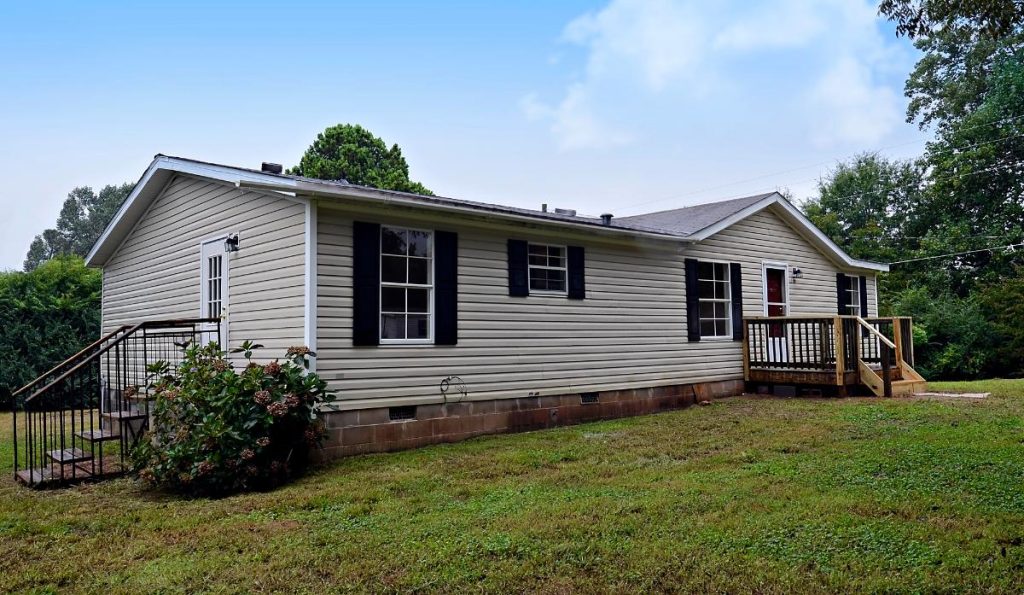Are you considering selling your mobile home? Whether you’re upgrading to a larger property or looking to downsize, selling a mobile home can be a unique process with its own set of challenges and considerations.
In this post, we’ll look at 8 things you need to know before putting your mobile home on the market. By understanding these factors, you’ll be better prepared to maximize your chances of a successful transaction.

1. Understand Your Home’s Value
Before listing your mobile home, you need a clear understanding of its value. Unlike traditional homes, mobile homes can depreciate over time, but several factors can influence their worth. These include the age and condition of the home, its size and layout, location and community amenities, recent upgrades or renovations, and local market conditions.
To get an accurate appraisal, consider hiring a professional appraiser who specializes in mobile homes. They can provide you with a detailed report that takes into account all relevant factors. Alternatively, you can research recent sales of similar mobile homes in your area to get a ballpark figure.
2. Know the Difference Between Real Property and Personal Property
One unique aspect of selling a mobile home is understanding how it’s classified. Mobile homes can fall into two categories: personal property (also known as chattel) or real property. Personal property refers to mobile homes that aren’t permanently affixed to the land. These are typically homes in mobile home parks or on rented land. Real property, on the other hand, includes mobile homes that are permanently affixed to land owned by the homeowner.
This classification can significantly impact the selling process, including paperwork requirements, financing options for buyers, and even the pool of potential purchasers. Make sure you understand which category your home falls into, as it will guide many of your decisions throughout the sale.
3. Consider the Land Situation
The land your mobile home sits on is extremely important in the selling process. There are two main scenarios: selling a mobile home on land you own or selling a mobile home in a mobile home park. If you own the land, you have the option to sell both the home and the land together, which can be more attractive to buyers looking for a complete property package. This scenario often allows for traditional real estate financing options, potentially expanding your pool of buyers.
If your home is in a mobile home park, you’ll need to factor in the park’s rules and regulations regarding sales. Some parks have restrictions on the age of homes they allow or may require approval of new residents. Additionally, buyers will need to consider ongoing lot rent and any park fees.

4. Prepare Your Home for Sale
Just like with traditional homes, presentation matters when selling a mobile home. Start by making necessary repairs, such as fixing any leaks, electrical issues, or structural problems. Update the interior with a fresh coat of paint and modern fixtures. Enhance curb appeal by tidying up the exterior, maintaining the lawn, and considering some attractive landscaping. Don’t forget to deep clean every nook and cranny and declutter to make spaces appear larger.
5. Navigate Titling and Paperwork
Selling a mobile home involves specific documentation that differs from traditional home sales. Key documents you’ll need include the mobile home title, a bill of sale, tax records, maintenance and repair records, and warranty information.
If your mobile home is classified as real property, you may also need a deed for the land. Be aware that titling requirements can vary by state, so research your local regulations or consult with a professional who understands mobile home sales in your area.
6. Understand Financing Options for Buyers
The financing landscape for mobile homes can be quite different from that of traditional homes. Common financing options include chattel loans for homes classified as personal property, FHA loans for homes classified as real property, VA loans for eligible veterans, and conventional mortgages typically for homes on owned land.
Understanding these options can help you market your home more effectively and prepare for potential buyer questions. Some buyers may face challenges securing financing for a mobile home, which could impact your pool of potential purchasers.
7. Choose the Right Selling Method
When it comes to selling your mobile home, you have several options, including selling it yourself, listing with a real estate agent, or selling to a mobile home buying company. Each method has its pros and cons. Selling it yourself can save on commission fees but requires more time and effort. Working with a real estate agent can provide expertise and a wider reach but comes with associated costs.
Selling to a mobile home buying company, such as the team of Sunbelt Home Sales, can offer a quick and hassle-free process. These companies specialize in mobile home transactions and can often provide cash offers, eliminating potential financing hurdles. They’re familiar with the unique aspects of mobile home sales and can navigate the process efficiently.
8. Be Aware of Potential Challenges
Selling a mobile home can come with unique challenges. These may include a limited buyer pool, as not all home buyers consider mobile homes, which can narrow your market. Financing issues can arise, as securing loans for mobile homes can be more challenging for buyers. Some parks or communities have age restrictions on homes they allow. Unlike traditional homes, mobile homes often depreciate over time, which can affect their resale value. Additionally, if the buyer wants to relocate the home, the cost and logistics of moving can be significant.
Being aware of these potential hurdles can help you prepare strategies to overcome them. For instance, you might consider offering seller financing or targeting your marketing to specific buyer demographics that are more likely to be interested in mobile homes.
To sum things up, selling a mobile home requires careful preparation and understanding of the unique factors involved. After reading through these important points, you’re well-equipped to navigate the sale process. With the right approach and preparation, you can successfully sell your mobile home and move on to your next adventure.
